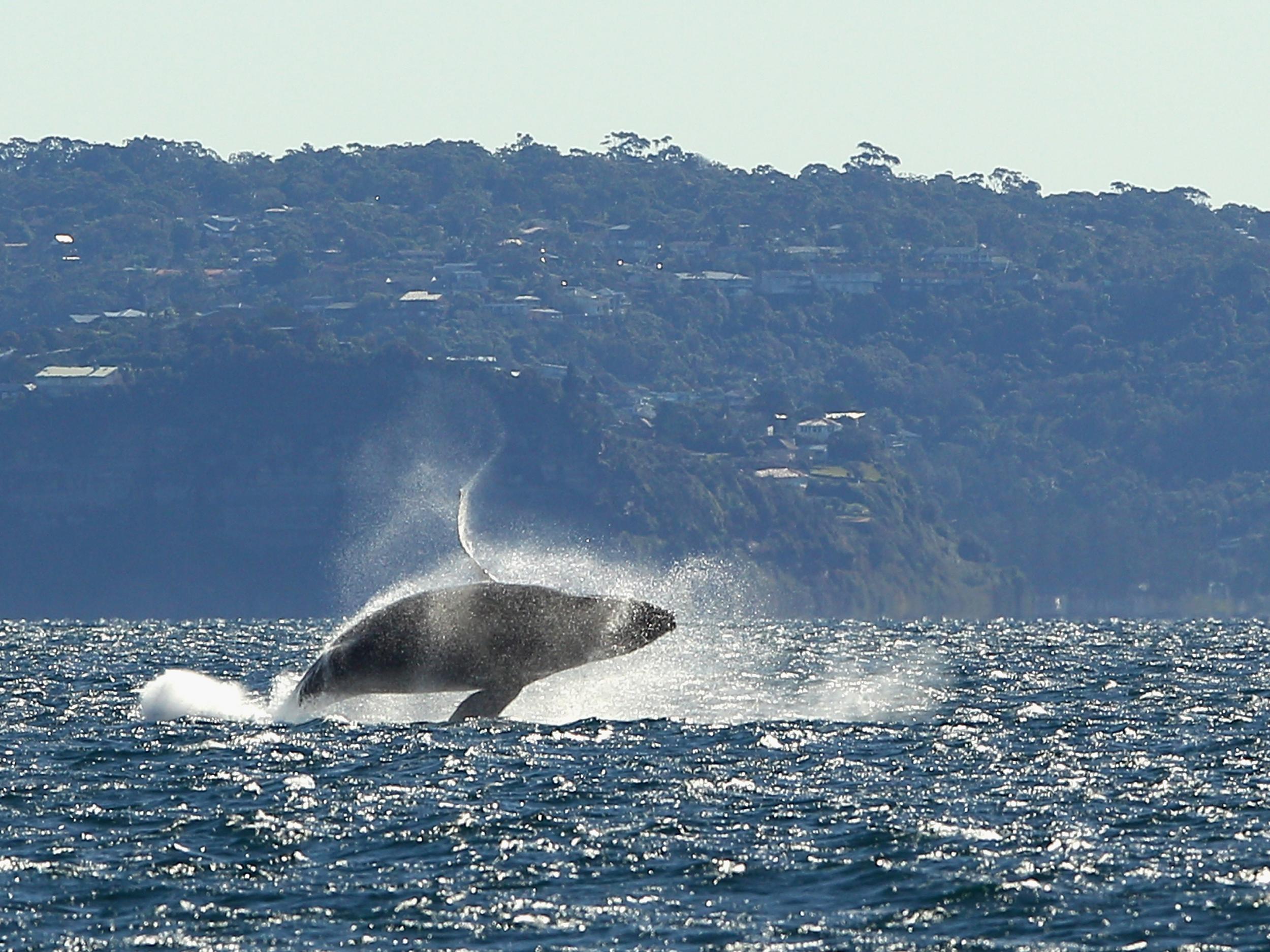Japanese bid to change law could end 30-year moratorium on global whaling, campaigners warn
Japan expected to deliver reform proposal at International Whaling Commission (IWC) meeting next month.

Your support helps us to tell the story
From reproductive rights to climate change to Big Tech, The Independent is on the ground when the story is developing. Whether it's investigating the financials of Elon Musk's pro-Trump PAC or producing our latest documentary, 'The A Word', which shines a light on the American women fighting for reproductive rights, we know how important it is to parse out the facts from the messaging.
At such a critical moment in US history, we need reporters on the ground. Your donation allows us to keep sending journalists to speak to both sides of the story.
The Independent is trusted by Americans across the entire political spectrum. And unlike many other quality news outlets, we choose not to lock Americans out of our reporting and analysis with paywalls. We believe quality journalism should be available to everyone, paid for by those who can afford it.
Your support makes all the difference.Animal rights campaigners have warned that if Japan is not stopped in its push to form a Sustainable Whaling Committee, it could lead to the resumption of commercial whaling around the globe.
The Japanese government's plan to propose a package of measures at a meeting at the International Whaling Commission (IWC) in Brazil in September has been widely condemned, with activists insisting that the move would effectively lift the global ban on for-profit whaling.
Marine conservationists believe the country’s suggested reforms are simply a ploy to revive the practice, which was banned under a 1986 IWC moratorium.
By exploiting a loophole, Japan has continued to hunt whales legally in the Antarctic for what it claims is “scientific research”. This year alone, a total of 333 minke whales were killed as part of the country’s controversial programme.
Japan’s fisheries agency says the hunts are carried out in accordance with the International Convention for Regulation of Whaling, but it is no secret that much of the meat from the slaughtered mammals is later sold on to be eaten.
They now propose setting a catch quota for species whose stocks are recognised as healthy by the IWC scientific committee.
“If Japan gets its way, it would be a massive victory for those rogue whalers who have time and again defied the international ban on commercial whaling and an absolute disaster for the world’s whales,” said Clare Perry, EIA’s Ocean Campaigns leader.
Conservation groups also accused Japan of attempting to resurrect a “cruel, archaic and unnecessary industry” by reducing the proportion of votes required to set catch quotas.
AWI marine wildlife consultant Kate O’Connell said it was vital Japan was not allowed to dilute voting rules to enable the hunting of whale species.
“We’re only just beginning to grasp the vital role whales play in maintaining the health of the world’s oceans,” she said.
“Weakening the ban now would be a fatal mistake and would open the doors to increased commercial whaling around the world. This cruel and unnecessary industry is a relic of the past that has no place in modern society.”
Australia’s department of the environment and energy said it would seek to block any attempt by Japan to return to commercial whaling.
“Australia will strongly oppose any proposals to overturn the moratorium or change the rules for setting catch limits,” it said in a statement to Fairfax Media.
Join our commenting forum
Join thought-provoking conversations, follow other Independent readers and see their replies
0Comments